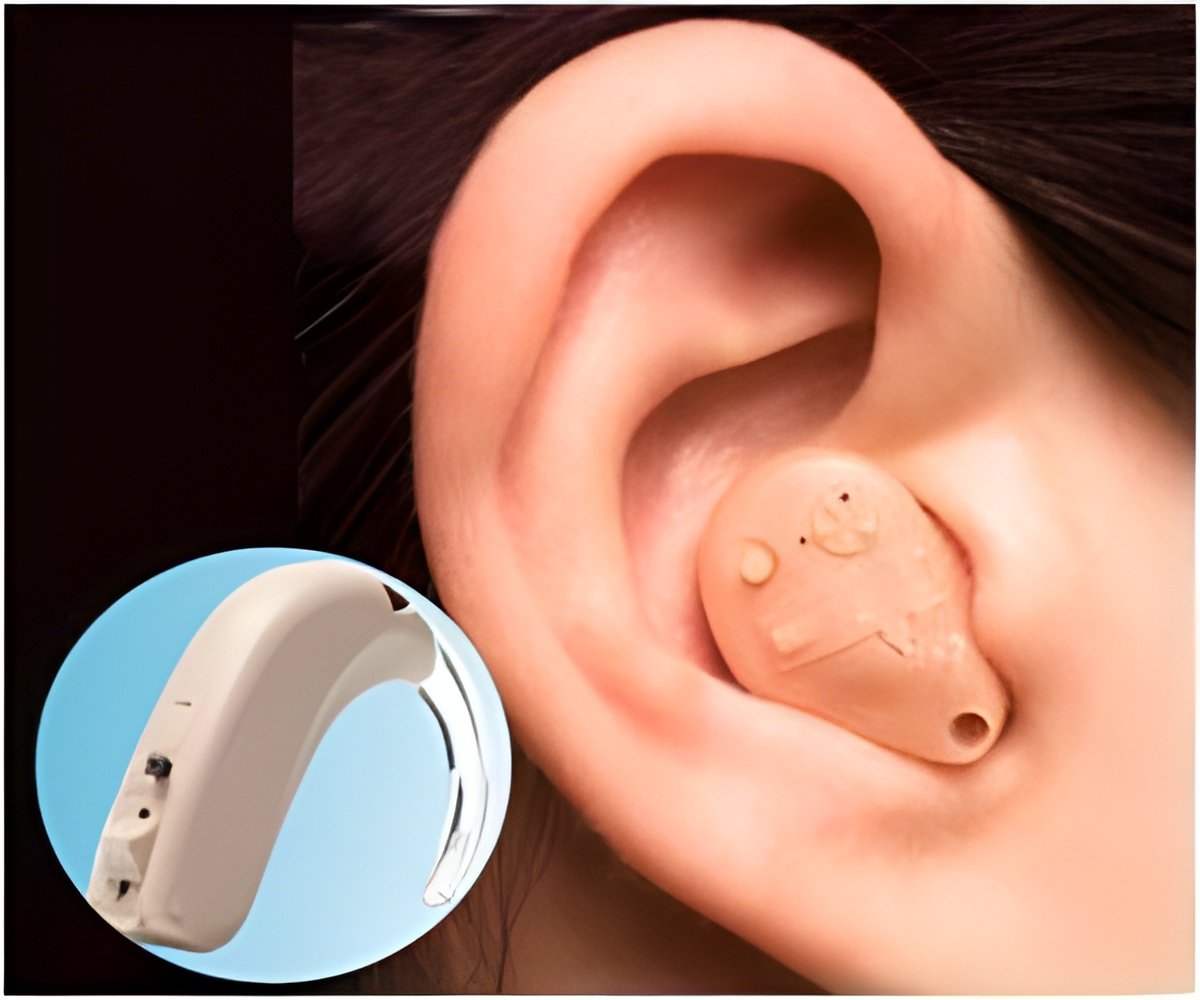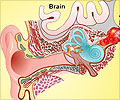Neuroscientists at the University of California, Berkeley, are offering hope to the 10 percent of the population who suffer from tinnitus – a constant, often high-pitched

"This work is the most clearheaded documentation to this point of what's actually happening in the brain's cortex in ways that account for the ongoing genesis of sound," said Michael Merzenich, professor emeritus of otolaryngology at UC San Francisco and inventor of the cochlear implant, who was not involved with the research. "As soon as I read the paper, I said, 'Of course!' It was immediately obvious that this is almost certainly the true way to think about it."
Merzenich is also chief scientific officer at Posit Science, which develops software to retrain the brain, primarily to improve learning and memory but more recently to address problems like schizophrenia, Alzheimer's Disease and tinnitus.
"Two million Americans are debilitated by tinnitus; they can't work, they can't sleep. Its life destroying and a substantial cause of suicide," he said. "These experiments have led us to rethink how we attack the tinnitus by our training strategies."
Loud noises kill hair cells
According to coauthor Shaowen Bao, adjunct assistant professor in the Helen Wills Neuroscience Institute at UC Berkeley, tinnitus – pronounced TIN-it-tus or tin-NIGHT-us – is most commonly caused by hearing loss. Sustained loud noises, as from machinery or music, as well as some drugs can damage the hair cells in the inner ear that detect sounds. Because each hair cell is tuned to a different frequency, damaged or lost cells leave a gap in hearing, typically a specific frequency and anything higher in pitch.
Advertisement
Bao's experiments in rats with induced hearing loss explain why the neurons in the auditory cortex generate these phantom perceptions. They showed that neurons that have lost sensory input from the ear become more excitable and fire spontaneously, primarily because these nerves have "homeostatic" mechanisms to keep their overall firing rate constant no matter what.
One treatment strategy, then, is to retrain patients so that these brain cells get new input, which should reduce spontaneous firing. This can be done by enhancing the response to frequencies near the lost frequencies. Experiments over the past 30 years, including important research by Merzenich, have shown that the brain is plastic enough to reorganize in this way when it loses sensory input. When a finger is amputated, for example, the region of the brain receiving input from that finger may start handling input from neighboring fingers.
Bao noted that retraining the ear has been tried before, but with limited success. Most such attempts have taken patients with some residual hearing and trained their ears to be more sensitive to the affected frequencies. This wouldn't work for patients with profound hearing loss, however.
Most retraining is also based on the assumption that reorganization of the brain – that is, changing how frequencies "map" to regions of the auditory cortex – is a cause of the tinnitus. This is the opposite of Bao's conclusion.
"We argue that reorganizing the cortical map should be the goal, so that the nerves get some input and stop their tinnitus activity," he said. "You don't want to leave these cells without sensory input."
"We changed our (brain training) strategy from one where we completely avoided the tinnitus domain to one where we directly engage it and try to redifferentiate or reactivate it, and we seem to be seeing improvement," Merzenich said.
Drugs can boost inhibitors
Another treatment strategy, Bao said, is to find or develop drugs that inhibit the spontaneous firing of the idle neurons in the auditory cortex. Hearing loss causes changes at junctions between nerve cells, the so-called synapses, that both excite and inhibit firing. His experiments showed that tinnitus is correlated with lower levels of the inhibitory neurotransmitter GABA (gamma-aminobutyric acid), but not with changes in the excitatory neurotransmitters.
He demonstrated that two drugs that increase the level of GABA eliminated tinnitus in rats. Unfortunately, these drugs have serious side effects and cannot be used in humans. He has applied for several grants to start screening drugs for their ability to enhance GABA receptor function, increase the synthesis of GABA, slow the re-uptake of GABA around nerve cells, or slow its enzymatic degradation.
"Our findings will guide the kind of research to find drugs that enhance inhibition on auditory cortical neurons," Bao said. "There are a lot of things we can do to change GABA functions, some of which could potentially alleviate tinnitus with fewer side effects."
Source-Eurekalert















